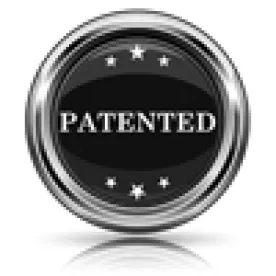Classen Immunotherapies, Inc. v. Elan Pharmaceuticals, Inc.
In a case addressing the “safe harbor” provision of 35 U.S.C. § 271(e)(1), the U.S. Court of Appeals for the Federal Circuit affirmed the district court’s ruling that information submitted to the U.S. Food and Drug Administration (FDA) for the purpose of filing a citizen’s petition and a supplemental New Drug Application (sNDA) is covered by the safe-harbor exemption, but remanded to determine whether other post-filing activities infringed the plaintiff’s patent. Classen Immunotherapies, Inc. v. Elan Pharmaceuticals, Inc., Case No. 214-1671 (Fed. Cir., May 13, 2015) (Lourie, J.).
Classen is the owner of a patent directed to a method for accessing and analyzing data on a commercially available drug to identify a new use of that drug and then commercialize that new use. In 2001, Elan, in response to discovering that another company was performing studies on its product Skelaxin, tested the effect of food on the bioavailability of its drug. Based on the test results, Elan filed with the FDA both a citizen’s petition requesting a change in the requirements for approval of a generic form of Skelaxin and a sNDA to revise Skelaxin’s product label. Both the citizen’s petition and the sNDA were approved. Elan also filed two patent applications based on the same test data. In 2004, Classen sued Elan alleging that Elan infringed Classen’s patent when it studied the effect of food on the bioavailability of Skelaxin, used the clinical data to identify a new use of the drug and commercialized the new use. The district court dismissed the case, finding both the filing of the citizen’s petition and the sNDA to be protected activities under the safe harbor provision of § 271(e)(1). After a multi-year stay during which the patent was reexamined, Classen moved for reconsideration based on the 2011 decision in Classen Immunotherapies v. Biogen IDEC (IP Update, Vol. 14, No. 9) where the Federal Circuit held that some post-approval submissions are not covered by the “safe harbor.” After the district court denied reconsideration, Classen appealed.
The panel quickly found that the filing of both the citizen’s petition and the sNDA were activities protected by the safe harbor, explaining that the § 271(e)(1) exemption from infringement extends to all uses of patented inventions that are reasonably related to the development and submission of any information to the FDA, not just activities seeking approval of a generic drug. The panel further found that both the sNDA and citizen’s petition filings were not routine post-filing activities, which, under Federal Circuit precedent could have brought them outside of the safe harbor provision. However, the panel found that the district court failed to consider whether the filing of Elan’s patent application, or the selling of Skelaxin with information derived from Elan’s clinical studies, was an act of infringement. Therefore, the panel remanded to the district court for additional development of the record.
Although the panel made no determination concerning Elan’s post-filing activities, the panel provided guidance “to assist the district court in its analysis of infringement, if the court reaches that issue on remand,” which made clear that it was highly skeptical of plaintiff’s infringement arguments. The panel also noted in a footnote that it expressed no opinion on whether Classen’s claims, which were reexamined in 2010, were patentable under the Supreme Court’s 2014 Alice Corp. v. CLS Bank ruling.




 />i
/>i
